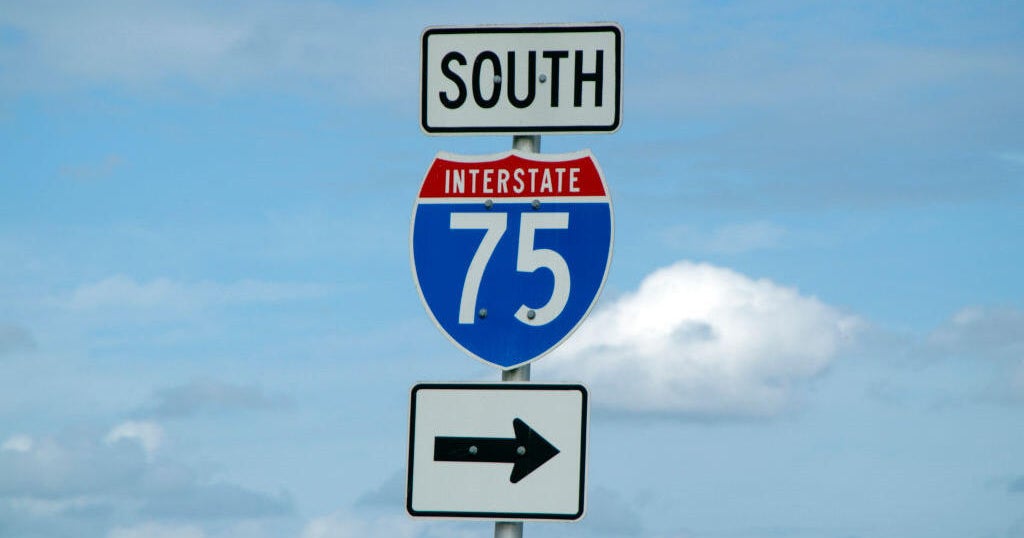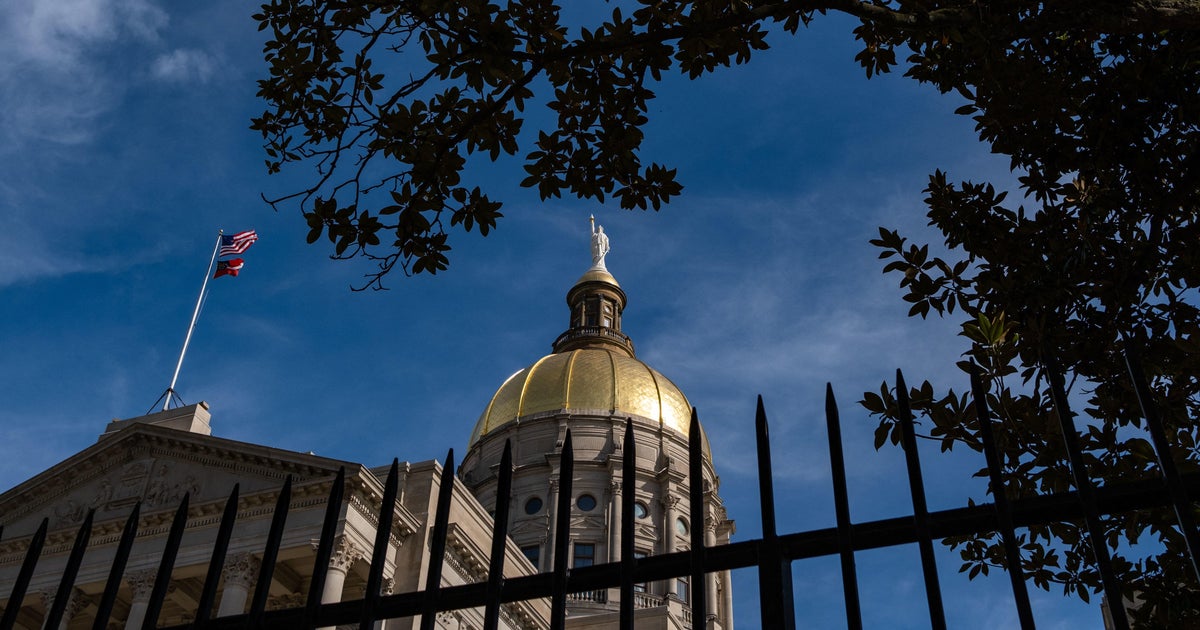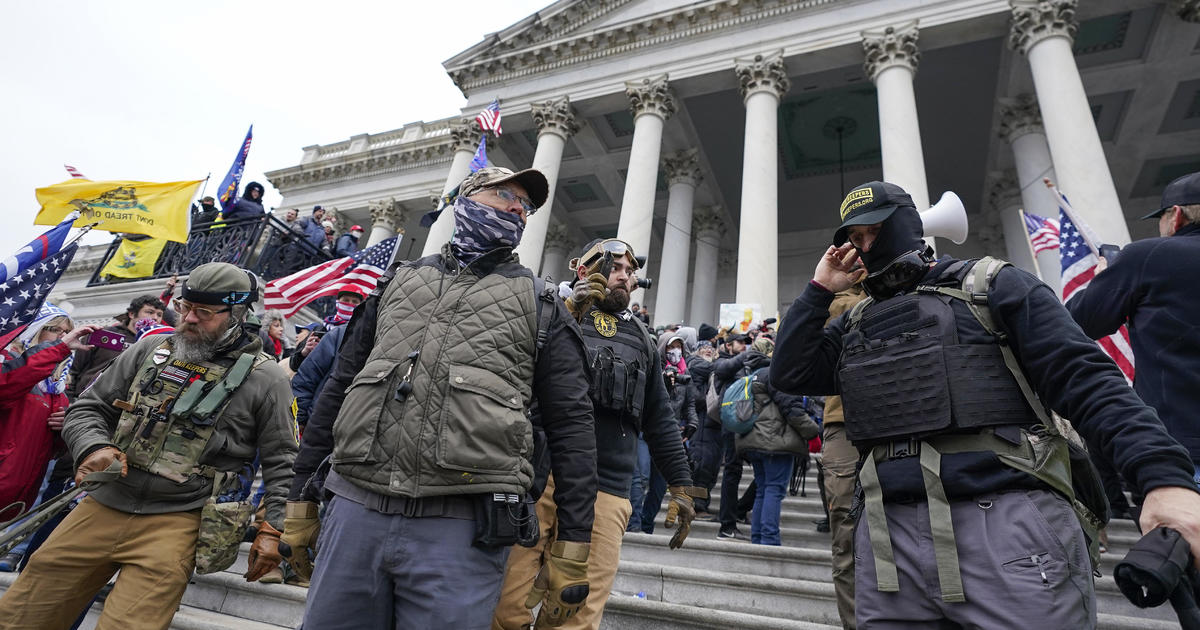Georgia's top elections official defended the 2020 results. Now he's defending the state's new voting law.
Georgia Secretary of State Brad Raffensperger, who was pressured by President Trump to change the election results in his state in the 2020 presidential election, is now defending the state's new, stricter voting law against a lawsuit by the U.S. Justice Department.
Raffensperger told CBSN's Tanya Rivero on Tuesday that he sees "absolutely no merit" in the lawsuit and insisted there is "record voter turnout" in the state.
Attorney General Merrick Garland alleged in a lawsuit filed last week that Georgia's election law was enacted "with the purpose of denying or abridging the right of Black Georgians to vote on account of their race or color, in violation of Section 2 of the Voting Rights Act."
Georgia was one of five states Mr. Biden flipped from President Trump in 2016, but Mr. Biden's slim 0.3% victory led to a hand recount of the results. Raffensperger himself certified the results on November 20, 2020 after a hand recount.
The Trump campaign sued Georgia's election officials, and then, days ahead of the state's crucial Senate runoffs — where both Democrats prevailed — Mr. Trump called Raffensperger and pressured him to find 11,780, one more than Mr. Biden's margin of victory, Raffensperger told "60 Minutes."
Raffensperger faced harsh criticism from many within his own party for his actions, and he was censured by state Republicans for "dereliction of duty" earlier this month at the party's annual convention. Raffensperger and his wife received months of death threats, his wife told Reuters earlier this month.
After the election, Georgia's GOP-led Assembly crafted a new voting law that expands early voting access for some Georgia voters, adds an ID requirement for absentee voting, codifies the use of drop boxes with strict rules on how they can be used and sets new rules for state and local election officials. It was signed by GOP Governor Brian Kemp in March.
The law outraged Democrats and voting rights groups because they believe the voter ID provisions and changes to mail-in voting will make more difficult for some minorities and poorer voters to cast a ballot. Within days, major corporations, including Georgia-based Coca-Cola and Delta, along with CBS News' parent company ViacomCBS, spoke out against the law, and Major League Baseball pulled its All-Star Game out of Georgia a day after Mr. Biden threw his support behind the idea.
Raffensperger insisted Tuesday that "anyone who wants to register can" and that these voter ID laws do not discourage voting.
"Look at early voting — we have now 17 days of mandatory early voting uniform across the state and any county that wants to have Sunday voting can have two Sundays of early voting," Raffensperger said. "So it's just really a record-beater there that leads the nation. And then look at on Election Day, the turnouts that we had, we actually defeated the whole issue of long lines here in Georgia."
Raffensperger stressed that adding voter ID is just an "objective" means of proving identity that "helps give voters a better experience." Thirty-six states require some form of voter identification, according to the National Conference of State Legislators, while the other 14 states require some other form of identification, such as matching signatures.
Democratic Senator Raphael Warnock told NBC News earlier this month that he has "never been opposed to voter ID," which was proposed by Senator Joe Manchin as part of a bipartisan compromise on a federal voting law.
"I don't know anybody who is — who believes people shouldn't have to prove that they are who they say they are," Warnock said. "But what has happened over the years is people have played with common-sense identification and put into place restrictive measures intended not to preserve the integrity of the outcome, but to select [a] certain group."
The bill also allows for the state Board of Elections to take over "underperforming" county election boards and replace them. Raffensperger has since targeted at the elections board in Fulton County, which includes Atlanta, for "gross mismanagement."
"The state election board has no intention of taking over counties unless they fail," Raffensperger told CBSN.
Adam Brewster and Caitlin Huey-Burns contributed to this report.





